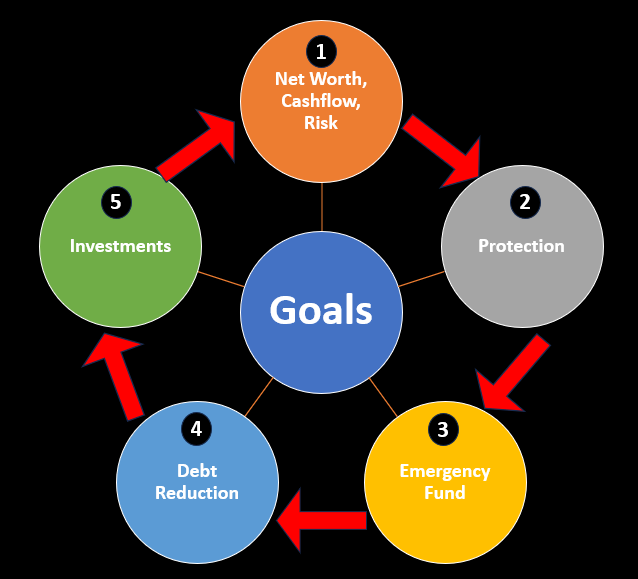Hey there, My Money Box Community! 👋
As a Personal Finance enthusiast, I’ve noticed a common trend – a lot of folks are navigating their financial journey without a roadmap. And let’s be honest, that’s like trying to find a hidden treasure without a map or compass. 🗺️💰
Without a solid plan, it’s easy to get swayed by the latest investment buzz, family advice, or even FOMO! But remember, there’s a method to the madness. Personal finance isn’t just about following your gut; it’s a beautiful blend of art and science. 🎨🔬
So, let’s break it down. Here’s a quick rundown of the steps you should consider to craft a truly “personal” financial plan that’s as unique as you are.
1️⃣ Goal Planning: Start by identifying your financial goals. Whether it’s buying a house, planning for retirement, or funding your child’s education, having clear goals is the first step towards financial freedom. As Zig Ziglar once said, “A goal properly set is halfway reached.”
2️⃣ Net Worth: Understand your current financial standing by calculating your net worth. This will give you a clear picture of where you stand today and what you need to do to reach your goals. As Warren Buffet wisely advises, “Do not save what is left after spending, but spend what is left after saving.”
3️⃣ Risk Profiling: Everyone has a different risk tolerance. Understand yours to make informed investment decisions. Remember the words of Benjamin Graham, “The investor’s chief problem—and even his worst enemy—is likely to be himself.”
4️⃣ Insurance: Protect your financial plan from unexpected life events. Ensure you have adequate life, health, and home insurance.
5️⃣ Emergency Fund: Life is unpredictable. An emergency fund acts as a financial safety net for unexpected expenses.
6️⃣ Debt Reduction: High-interest debt can be a significant roadblock in your financial journey. Prioritize paying off your debts. As Robert Kiyosaki suggests, “Good debt makes you rich and bad debt makes you poor.”
7️⃣ Investments: Finally, invest wisely. Diversify your portfolio and align your investments with your financial goals and risk profile. As Peter Lynch reminds us, “Know what you own, and know why you own it.”
Just as each person is unique, so too should be their financial plan. Your financial plan should be a reflection of your life, your dreams, and your comfort levels. It should be flexible enough to adapt to the changes in your life and robust enough to withstand market fluctuations.
A young professional starting their career might prioritize paying off student loans and building an emergency fund, while a mid-career professional might focus on retirement planning and children’s education. A retiree, on the other hand, might focus on estate planning and preserving wealth for the next generation.
I’ve seen the power of a comprehensive financial plan in action. It’s not just about numbers; it’s about crafting a roadmap to your dreams. 🗺️💰
Remember, Rome wasn’t built in a day, and neither will your wealth. It’s a journey, not a race. 🏃♂️💨
If this all sounds overwhelming, use Certified and SEBI registered Personal Financial Planners to help you with this important journey.
I’d love to hear your thoughts on this. What steps have you taken in your financial planning journey? What challenges have you faced? 💬
If you liked this post from My Money Box, why not tell a friend, or better yet, why not share it?







